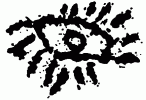| |
CONCLUSIONS
The facts and considerations presented in the
previous chapters will have permitted the reader to formulate views on
different aspects of research and analysis: archaeological, palaeoclimatic,
palaeogeographic, historical, ethnological, exegetic, psychological, and
philosophical. The raw material described so far may stimulate thought and
debate, but in synthesis, what can we draw from twenty years of archaeological
research at Har Karkom? One thousand, two hundred previously unknown archaeological
sites and the resultant comparative research reveal some fundamental trends.
Har Karkom was a paramount cult centre and a
sacred mountain beginning in the Palaeolithic Age, reaching its peak of
religious activity in the third millennium BC. It was then a true "Mecca" for
the desert people. If the epic accounts described in the books of Exodus and
Numbers rely on a historical background, and if indeed an exodus from Egypt
took place with stops at Mount Sinai and at Kadesh-barnea, the chronological
context may refer only to the BAC period, and more precisely to phase BAC IV
(2350-2000 BC). Har Karkom was a primary sacred mountain in that period, and
the topography and archaeological evidence of its plateau appear to reflect the
location and character of the biblical Mount Sinai. The documentation provided
by archaeology at Jericho and Ai and other archaeological sites mentioned in
the Bible, the parallels with Egyptian literature, and the finds at Har Karkom
all seem to imply that the biblical accounts of Exodus may have a historical
background. True to the character of mythical accounts, the stories may have
undergone some degree of transformation and elaboration over years of
transmission. One should not forget to acknowledge that storytellers and
troubadours from various generations may have had a role in the final
compilations of the texts which reached us. In contrast to the widespread
tendency of dismissing the Bible as a historical source, in our view, this
narrative, popularised though it may have been, was and is founded on real
historical occurrences, as corroborated by the archaeological discoveries at
Har Karkom.
|



